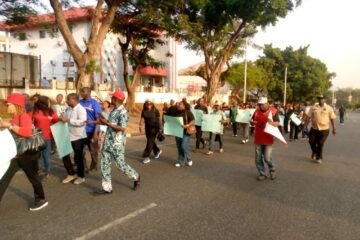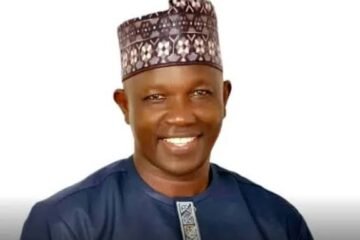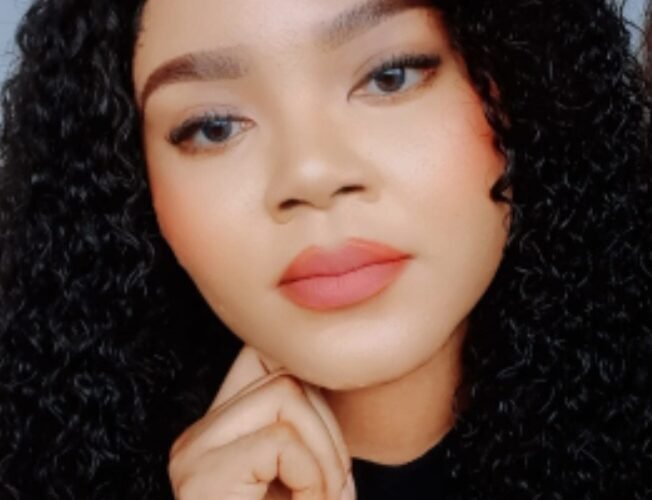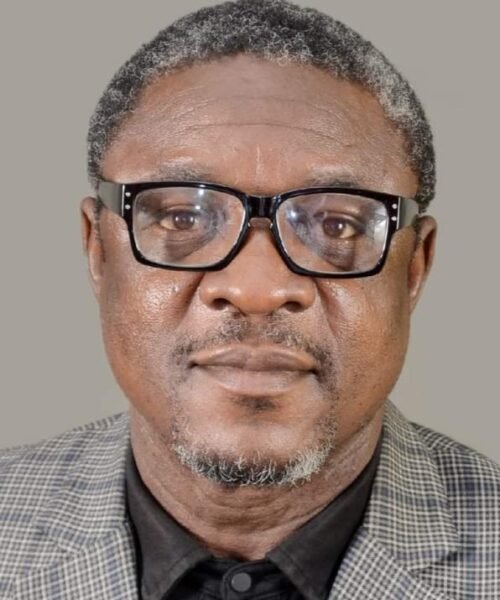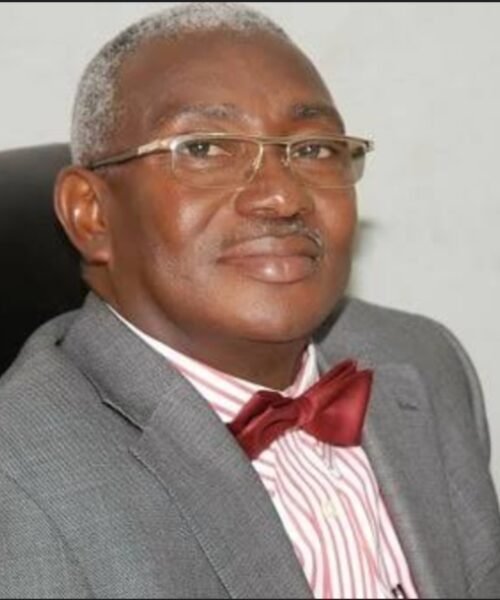By OREVA GODWIN
I’m not a mother yet. I’ve never gone through the journey of pregnancy. They say you can’t relate to a pain you haven’t experienced. But do I really need to be a mother to talk about this topic? No, I don’t think so. For as long as I’m able to research and speak with women who’ve gone through it and lived it as their reality. I can generate relevant questionnaires to understand the phenomenon better. I must admit however, that as a young woman considering motherhood, it’s terrifying experience to confront.
I once told my family that I would consider opting for surrogacy instead of carrying a baby in the womb to full term. My elder sister, who is a mother, was quick to counter my thoughts and preached about the beauty of pregnancy and the connection one feels with the child even before birth. She urged me to experience pregnancy personality. I laughed and soliloquied, “Where’s the reward?” Maybe I’m just wired differently from my siblings. Mothers are incredible, and they should be celebrated every single day.
So, why am I afraid of the pregnancy journey? Because of postpartum depression, a condition that is real, painful, and often ignored.
In many African cultures, mothers are not coming out boldly to share their postpartum depression experiences or admit that they are going through one. African mothers are groomed to keep up the mask of a”strong woman” while, refusing to admit vulnerability or acknowledge depression. But silence doesn’t heal, it deepens the wound further.
What Is Postpartum Depression (PPD)? It is a serious mental health condition that can affect women after childbirth. It involves persistent feelings of sadness, anxiety, hopelessness, and fatigue that interferes with daily life. While many new mothers experience the “baby blues” a short-term emotional shift, PPD is more intense and lasts much longer, often more than two weeks.
PPD doesn’t look the same for every woman. It varies depending on hormonal changes, cultural background, support systems, and even the nature of each pregnancy.
According to the World Health Organization, 10–15% of women worldwide suffer from postpartum depression. Yet, many remain undiagnosed due to stigma, lack of awareness, or limited access to mental healthcare.
PPD can also be triggered by physical changes such as weight gain, stretch marks, or a shifting self-image. Watching one’s body transform can cause deep emotional distress, leading some women to resent their babies, hide from their partners, or feel unworthy of love.
Amara met Fred when she was in her prime. She had a natural hourglass figure that made heads turn. They dated briefly and got married. Pregnancy wasn’t easy. She gained weight, developed stretch marks, and her tummy darkened significantly.
After giving birth to a set of the twins, the depression set in. Sleepless nights blurred into endless confusion. She became absent-minded; sometimes, her babies would cry and she’d just sit there, unable to hear them. She looked at her body and hated what she saw. One day, she smashed her bedroom mirror. It hurt too much to look at the reflection that confronted her.
She couldn’t bear her husband’s touch. She avoided being seen naked, even by him. She became suicidal, often sitting in the shower, crying, overwhelmed by hopelessness.
Her mother, who had enjoyed motherhood herself, didn’t recognize her daughter. Amara was angry, unkempt, and haunted by guilt and shame.
One day, Fred broke down. “You’re not the woman I married. Where is my funny, vibrant Amara? Why do you hate our children?” That’s when the dam broke. She screamed and cried. She was in rage and needed to lay it all out. She was losing her mind, and felt like exploding. And she told him, “You and your children took away my beauty, my sanity, my peace.” For the first time since childbirth, she undressed in front of him and shouted, “is this what you married? I’m a living scar.” When Fred saw the changes in her body, he understood. He held her tight as she sobbed uncontrollably.
From that moment, he changed. He supported her. He helped with the kids. He reminded her of her worth. And with time made her laugh, spoilt her with gifts, and smiled whenever she complained of her body and tried to make her feel comfortable with her body. One night, he undressed her gently and kissed every stretch mark on her body, worshipped her, and made love to her. Over time, Amara healed.
Nancy had been married for five years and struggled to conceive. When she finally got pregnant, everything seemed fine until the baby came.
Breastfeeding was a nightmare. Her nipples were so flat. She struggled to pull out her nipples so she could breastfeed her baby, but the pain was unbearable. She developed insomnia and felt completely hopeless. “Why did I even want a baby badly?” she asked herself. She felt like a failure and kept to herself. She became anti-social and would not want to see visitors, with the fear of being judged because of sudden weight gain.
At six weeks postpartum, her husband noticed the darkness she was slipping into. He contacted a medical friend, who referred them to a therapist. She was diagnosed with PPD and put on antidepressants which she took reluctantly, at first. Her husband however stood by her, encouraged her, and stood by her till she healed. And slowly, she regained herself. Support from the husband saved her.
Cindy gave birth alone, with no family around. Her husband barely participated in the process. He’d come home late and only held the baby to make videos for social media. Her nanny left unexpectedly, claiming that her mother was ill. Cindy had to do it all; cleaning, cooking, and caring for the child alone. It gradually led to depression.
She couldn’t handle the baby’s cries. She was exhausted. She started waist-training to get her figure back, but nothing worked. One day, she had a mental breakdown. She left her baby in the house, with the door open. She walked out of the estate that they resided and just stood on the main road completely disconnected.
Fortunately, her husband came home early that day and found her staring blankly into the skies. He called her, but she was too lost to hear him. He came down from the car and tapped her, and then she turned confused, obviously not knowing how she got there. When he asked “Where’s our son?” She responded, “Which son?” Before she later remembered.
They rushed back home. The baby had cried so much that he lost his voice and developed a fever. Her husband was scared for the wife. He finally made calls and sought help. They realized what was wrong and sought professional help. That day, the man learnt about postpartum depression.
Our dear Cindy is receiving help. The hope is that she gets the help she truly and desperately needs. And there are prayers from concerned family members that her husband would be more supportive. We continue our love and prayers to her.
Elohor on the other hand had her child and then postpartum depression kicked in. She hated her body and got so insecure. She had acne that refused to clear. They took over her face due to endless stress and lack of sleep. She also had skin discoloration. Elohor hated herself. Her nipples were so swollen to the extent that the baby’s mouth couldn’t fit in. The struggle to endure the pain and pump her breastmilk into a sterilized bowl was a harrowing experience. Coupled with the pain from the Cesarean birth and the scar it left on her stomach. It was too much for Elohor. PPD was instantly triggered.
Efe, her husband was not emotionally intelligent to understand the phase she was passing through. Elohor kept a strong face, hoping that her husband would be proud of her. But she was dying and drained out almost completely. While her husband believed she was good and strong, she was actually broken. One day, she casually complained to Efe, but he just casually said “it’s no new thing. Women go through this everyday. So, why complain? Are you tired of being a mother so soon?” She just smiled and kept a straight face.
One day she woke up and couldn’t breathe. She was losing it. She had a panic attack. It was her mother who came to care for her that day that made the difference. She saw life leaving her daughter and screamed for help. Elohor was rushed to the hospital. The doctor said she developed a high BP and looked stressed and that she needed lots of rest.
The doctor learnt that she was a new nursing mom and engaged her in a deep conversation. Elohor let everything out. He educated her, Efe and her mother on what she was going through and how they could serve as a support system. Her husband, having an understanding of the problem, invited her siblings over briefly to keep a close and friendly bond in the house to speed up the recovery. This helped Elohor on her journey to recovery and self-acceptance.
Preparing for motherhood is not just about baby names and nursery decor. It’s about choosing a partner who is emotionally ready to walk that path with you. Don’t carry it all alone. Don’t try to be a “strong woman” all the time. Strength will fail you. What you need is a support system.
To the new mothers suffering from PPD, you are not alone, note that you are not a bad person. You are not broken. You are loved.
Admitting you need help is not a weakness. It’s the first step to recovery. Join a support group, online or offline. Talk to someone. Seek therapy. Talk to your doctor. You matter.
Taking care of your mental health is essential for both mother and baby. Don’t wait until you’re drowning before seeking help. Don’t suffer in silence. If you can, take periodic walks. Exercise gently. Do something for you. Reclaim your peace slowly, gently, and at your own pace.
Motherhood is beautiful, but it can also be brutal. Let’s be honest about that. Let’s support women who are struggling. Let’s normalize talking about postpartum depression.
To every mother reading this: You will get through this. You are stronger than you know. You are enough.




